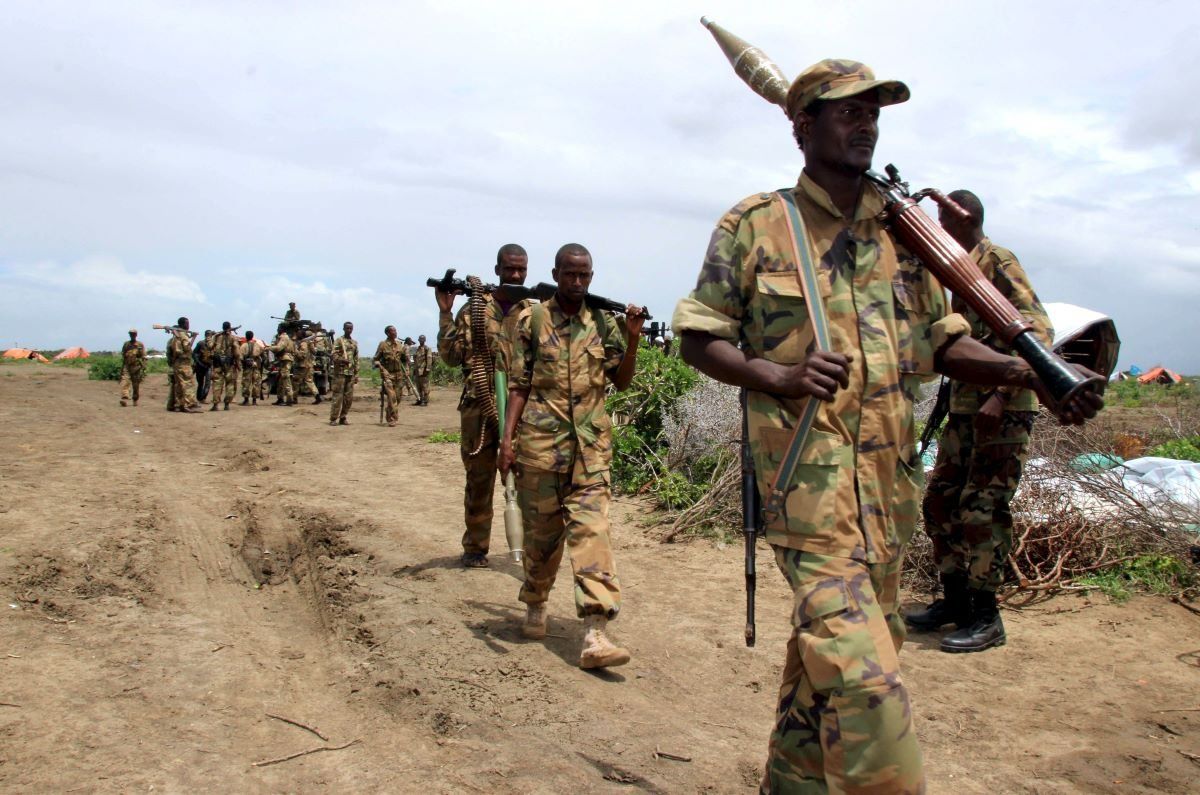Election dispute ignites military confrontation in Somalia’s Jubbaland
December 11, 2024
Jubbaland forces carry their ammunitions during a security patrol against Islamist al Shabaab militants in Bulagaduud town, north of Kismayu, Somalia.
REUTERS/Abdiqani Hassan
On Wednesday, fighting broke out in Somalia’s semi-autonomous Jubbaland between regional and federal government forces. The violence came after Jubbaland held an election without Mogadishu’s authorization that granted Ahmed Mohamed Islam Madobe a third consecutive term.
What happened? When Jubbaland ignored the federal government’s opposition to the election, Mogadishu issued an arrest warrant for Madobe, and Jubbaland responded by issuing a reciprocal warrant for President Hassan Sheikh Mohamud.
Somalia's defense minister accused the Jubbaland forces of initiating the clashes on Wednesday, but the federal government responded with drone strikes, and both sides are reporting casualties.
Why it matters: The fighting is taking place in a strategically important region. Jubbaland, one of Somalia’s five semi-autonomous regions, is situated adjacent to Kenya and Ethiopia. It is Somalia’s breadbasket, its shoreline delineates a contested maritime zone with Kenya, with potential oil and gas deposits, and Kismayu is a key port.